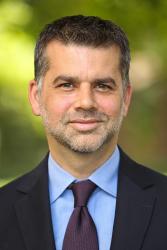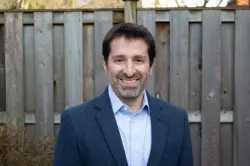

10:00 am EST - 11:15 am EST
Past Event
10:00 am - 11:15 am EST
1775 Massachusetts Avenue NW
Washington, DC
20036
Israeli society is diverse, dynamic, vibrant, and challenged. Israel’s long-held social solidarity faces new pressure from growing internal fissures and from the ongoing conflict with the Palestinians.
In bold and candid remarks earlier this year, Israeli President Reuven Rivlin identified four “tribes” in Israeli society, representing different worldviews, and called for a new effort to find common ground among secular, national-religious and ultra-Orthodox Jewish Israelis, and Arab citizens of Israel. How might Israel’s diverse society coalesce in the coming years? How will the future of Israeli society affect its democracy, its relations with its neighbors and with the United States?
On December 10, the Center for Middle East Policy at Brookings hosted President Reuven Rivlin to discuss his vision for the future of Israeli society and the U.S.-Israeli relationship. Bruce Jones, vice president and director of Foreign Policy at Brookings, gave welcoming remarks, and Tamara Cofman Wittes, senior fellow and director of the Center for Middle East Policy at Brookings, introduced President Rivlin.
Following President Rivlin’s remarks, Natan Sachs, fellow at the Center for Middle East Policy at Brookings, engaged the president in conversation.
Join the conversation on Twitter at #IsraelsFuture.



Madiha Afzal, Marsin Alshamary, Aslı Aydıntaşbaş, Pavel K. Baev, Sarah A. Binder, E.J. Dionne, Jr., Vanda Felbab-Brown, William A. Galston, Sharan Grewal, Ryan Hass, Tanvi Madan, Suzanne Maloney, Gian Maria Milesi-Ferretti, Itamar Rabinovich, Natan Sachs, Jaganath Sankaran, David Wessel, Andrew Yeo
April 15, 2024

Suzanne Maloney
April 8, 2024

Vanda Felbab-Brown, Jeffrey Feltman, Sharan Grewal, Steven Heydemann, Marvin Kalb, Patricia M. Kim, Tanvi Madan, Suzanne Maloney, Allison Minor, Bruce Riedel, Natan Sachs, Valerie Wirtschafter
April 5, 2024